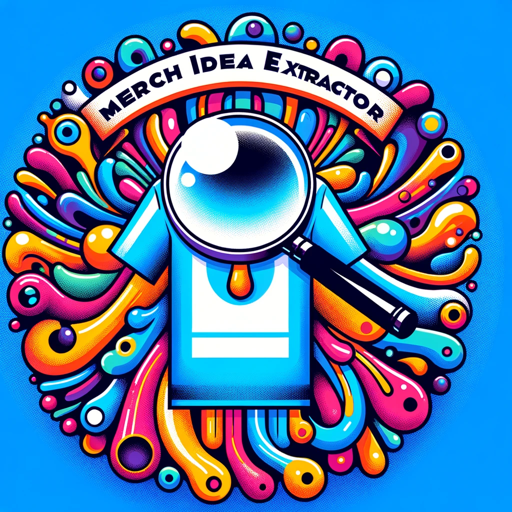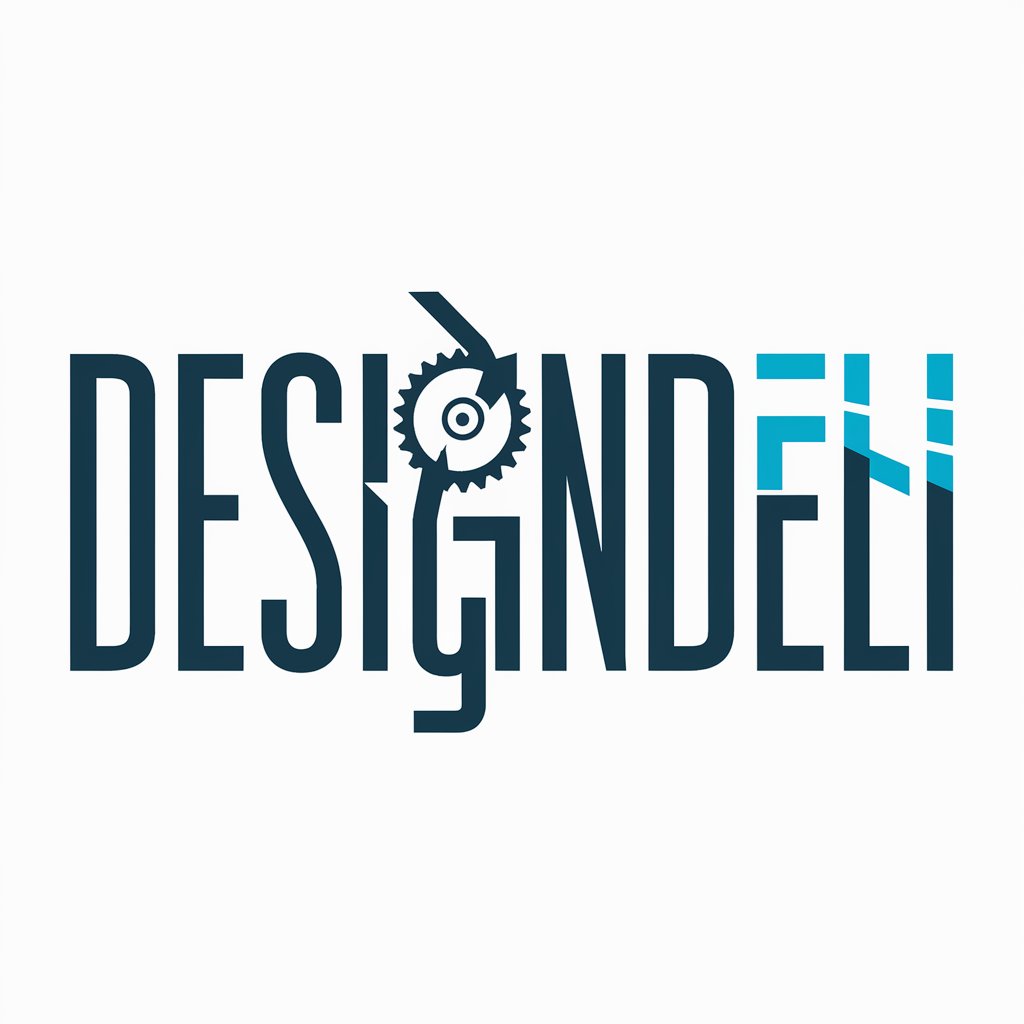4 GPTs for Merch Design Powered by AI for Free of 2025
AI GPTs for Merch Design refer to the use of Generative Pre-trained Transformers in creating and enhancing merchandise designs. These AI-driven tools are specialized in understanding and generating content that aligns with the unique demands of merchandise design, such as logos, branding elements, and product visuals. Leveraging GPTs in this context offers a tailored solution that adapts to the specific creative and marketing needs of the merchandising sector, streamlining the design process and fostering innovation.
Top 4 GPTs for Merch Design are: Print on Demand - Easy Designer,Merch Idea Extractor,DesignDeli - Print On Demand Designs That Sell,Sci Pal
Print on Demand - Easy Designer
AI-powered tool for easy, unique designs
Merch Idea Extractor
AI-powered t-shirt ideas from content

DesignDeli - Print On Demand Designs That Sell
Crafting Your Next Bestseller with AI

Sci Pal
Elevate Your E-commerce Game with AI

Essential Attributes of AI for Merchandise Design
AI GPTs tools for Merch Design stand out due to their adaptability, learning from a vast dataset of design preferences, trends, and technical requirements. They offer a wide range of capabilities from generating initial design concepts to refining detailed visual elements. Special features include advanced image creation, tailored language models for branding, technical support for design optimization, and the ability to perform web searches for the latest design trends. These tools can analyze customer data to predict trends, ensuring designs remain relevant and appealing.
Who Benefits from Merch Design AI
AI GPTs for Merch Design cater to a broad audience, including beginners looking to create custom merchandise, developers integrating AI into design platforms, and professionals in the merchandising field seeking innovative solutions. These tools are designed to be accessible to users without coding skills, offering intuitive interfaces, while also providing extensive customization options for those with technical expertise, allowing for the creation of unique and sophisticated merchandise designs.
Try Our other AI GPTs tools for Free
Interviews
Discover how AI GPTs for Interviews revolutionize the hiring process with tailored question generation, interview simulations, and in-depth response analysis, catering to both recruiters and job seekers.
Fandom Discussion
Explore the world of AI GPTs for Fandom Discussion, where advanced AI meets passionate fan communities. Engage, create, and connect like never before.
Forecast Modeling
Discover the future of forecasting with AI GPTs. Tailored solutions for accurate predictions and insights across industries.
VM Configuration
Explore AI GPTs for VM Configuration: automated tools transforming virtual machine setup and management through advanced natural language processing and machine learning technologies.
Distribution Updates
Explore AI GPT tools tailored for optimizing distribution updates, designed to automate, predict, and enhance your distribution strategy efficiently.
Artistic Trends
Discover how AI GPTs for Artistic Trends leverage machine learning to offer insights, predictions, and creative solutions for artists, designers, and art enthusiasts.
Further Exploration into Merch Design AI
AI GPTs function as a bridge between creativity and technology in the merch design sector, offering user-friendly interfaces that make advanced design tools accessible to a wider audience. The integration of these AI tools with existing systems or workflows represents a significant step forward, enabling a seamless design process and the potential for real-time design adjustments based on market feedback and emerging trends.
Frequently Asked Questions
What are AI GPTs for Merch Design?
AI GPTs for Merch Design are artificial intelligence tools designed to assist in the creation and optimization of merchandise designs, leveraging generative pre-trained transformer technology to provide tailored design solutions.
How do these AI tools benefit merch design?
They streamline the design process, offer innovative design solutions, predict design trends, and personalize merchandise based on data-driven insights, enhancing both efficiency and creativity.
Can non-designers use AI GPTs for Merch Design?
Yes, these tools are built with intuitive interfaces that allow non-designers to create professional-grade merchandise designs without prior design experience.
Are there customization options for developers?
Yes, developers can access APIs and coding interfaces to customize and integrate AI-powered design tools into existing platforms or workflows, offering greater flexibility and functionality.
How does AI predict design trends?
AI analyzes vast amounts of data on current design trends, customer preferences, and market demands, using this information to predict future trends and guide the design creation process.
Is technical support available for these AI tools?
Yes, most AI GPTs for Merch Design come with technical support to assist users with both the creative and technical aspects of the design process.
Can these tools generate designs from scratch?
Absolutely, AI GPTs can generate initial design concepts based on brief inputs, which can then be refined to meet specific branding and merchandise requirements.
How do these AI tools adapt to different merchandising needs?
These AI tools learn from a vast dataset of designs and user feedback, allowing them to adapt and generate content that aligns with a wide range of merchandising themes and requirements.